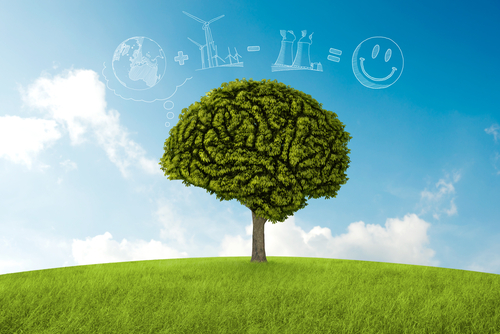Green spaces boost brain development in kids: Study
IANS Feb 26, 2018
Children growing up amid greenery may benefit as their brain development is positively affected leading to better working memory and reduced inattentiveness, a study has said.

According to the researchers, primary school children raised in homes surrounded by more green spaces will tend to have larger volumes of white and grey matter in certain areas of their brain. Those anatomic differences are, in turn, associated with beneficial effects on cognitive function, the researcher said. "Our findings suggest that exposure to green space early in life could result in beneficial structural changes in the brain," said lead author of the study, Payam Dadvand, researcher from the Barcelona Institute of Global Health (ISGlobal).
"This is the first study that evaluates the association between long-term exposure to green space and brain structure," Dadvand added. For the study, published in the journal Environmental Health Perspectives, the researchers examined 253 school children. Lifelong exposure to residential green space was estimated using satellite-based information on the children's addresses from birth up through to the time of the study.
Brain anatomy was studied using high-resolution 3D magnetic resonance images (MRI). Working memory and inattentiveness were evaluated with computerised tests. The data analysis showed that long-term exposure to greenery was positively associated with white and grey matter volume in those parts of the brain that partly overlapped with those associated with higher scores on cognitive tests.
Peak volumes of white and grey matter in the regions associated with green space exposure predicted better working memory and reduced inattentiveness. Green spaces are said to provide children with opportunities for psychological restoration and prompt exercises in discovery, creativity and risk taking, the researchers said. Furthermore, greener areas often have lower levels of air pollution and noise and may enrich microbial inputs from the environment, all of which could translate into indirect benefits for brain development.
-
Exclusive Write-ups & Webinars by KOLs
-
Daily Quiz by specialty
-
Paid Market Research Surveys
-
Case discussions, News & Journals' summaries